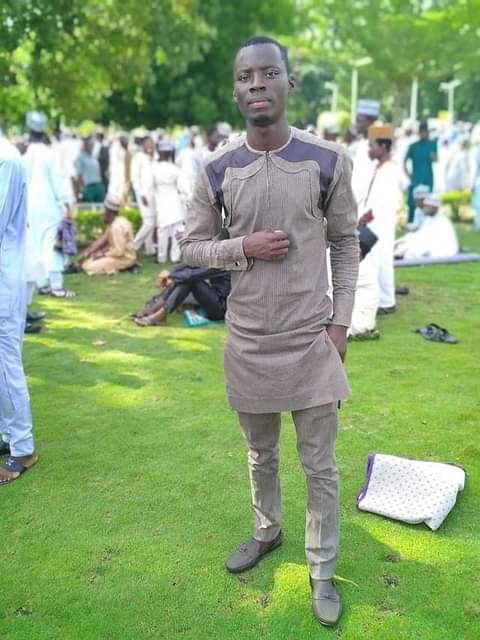National Issues
Menace Of Jungle Justice: An Indication Of State Failure -By Sodeeq Adisa Atanda

The prevalence of jungle justice in Nigeria despite the existence of a government so put in place to ensure protection and prevention of descent into anarchy in the country questions the morality and efficacy of the law and its enforcement. Every time jungle justice, street justice, instant justice or mob justice or whatever name it may be called takes place, some of us in the society rush to seize the opportunity to condemn such reprehensible act just the same way the ruling class and even the person reading this piece condemns attacks by herdsmen, bandits Boko Haram and other matters of insecurity.
It is expeditious to put the meaning of jungle justice in context. Jungle justice is any form of extra-judicial killing, torture, beating or humiliation meted out on an individual in a wicked disregard to the rule of law and sanctity of human lives. Usually, when this is done, perpetrators take delight that justice is served. But this is more often than not incorrect, as it is a callous act only animals can do without questioning.
By the provisions of the 1999 Constitution of the Federal Republic of Nigeria (as amended), citizens are bestowed with fundamental rights and freedom. Precisely, Sections 33 and 34 provide for and guarantee the right to life and human dignity respectively and these are sacred that nobody could unjustly violate them. The Constitution establishes in Section 214 (1) the
Nigeria Police Force to, among other things, maintain law and order, ensure public safety and highlights the mode of arrest, detention and prosecution of offenders while Section 6 (1) establishes the courts for administering justice and equity in a three-way traffic: justice for the state, justice for the complainant and justice for the offender.
It is an act that stands against all rationality, humanity and an intolerable one in any sane society. As such, this writer condemns in strong terms all manners of mob actions, including the latest heart-rending one that happened in Iwo, Osun State. The latest case at Iwo involved two women, suspected to have abducted one little kid each. The action bespeaks the failure of the state actors and weakened institutions in the sacred responsibility of protecting lives and property. Viewed holistically, it is a situation that renders all of us insecure and places our lives at the mercy of primordial bloodthirsty people.
Against the backdrop of the continued perpetration of this misnomer and callous act, it provokes sensible minds to explore the factors, motivation and and why the act is yet to abate despite condemnations by private and public authorities. Why is this happening in our society? It’s perhaps a strong sign of a fallen rule of law. The law begins to loose it’s force and relevance the moment it is enforced selectively or lopsidedly. Where the rich escape the wrath of the law and the innocent poor is made the scapegoat.
Evidence is abundant as to the pervasiveness of crime in Nigeria and the few who toe the legitimate path to register their ordeals in the hands of criminals have not had it good in the the hands of the officers of the law. In effect, the public confidence in the law enforcement and judiciary has been battered and eroded that people now have the temerity to take law into their own hands.
Tongues continue to wag. Some class of persons would stand on the side of jungle justice ‘judges’ and another class of persons would to condemn and lash out at the ‘judges of the jungle’. The former class perhaps derives justification for their stance from the failure of state law enforcers and the corrupt inclination to favour the highly placed where the crime involves the rich. The latter class feels that the law abhors such bestiality and humanity. But the question is, despite the stern position of the law in this context, why have we not seen a drastic reduction in the spate of the crime.
Law enforcement is no more what it used to be; it is at the mercy of how much one can pay. No one now seems to have moral strength to dissuade and change the psychology of the public on the inhumanity of street justice. I have most times lost the ability to argue further with anyone whenever I am confronted with cases where criminals who committed heinous crimes got released despite open evidence to nail them.
Recently, a case of police assault was reported during the lockdown in the same Iwo community, Osun State, which widely trended on social media. The police authorities claimed to have tried the concerned officers and dismissed them from the Force. But, when you cite this case as a matter of sincerity on the part of the law enforcement agencies, people would still tell you the concerned officers were only patted on the back.
Judiciary and justice system are too procedural. It thus allows criminals to escape justice. When a criminal is charged, in the course of the prosecution, if the judge makes a ruling on a particular issue within the substantive suit, the criminal may file an appeal against such ruling up to the Apex court. This journey may be tedious as the wheel of justice administration extremely slow and may take up to ten or more years to finish before the court would now come back to the substantive suit. All along, the person against whom the offence is committed may have resigned to fate or loose fidelity in the outcome of the matter.
When a matter is reported to the police, the complainant often becomes the suspect in some cases. The police demand money from the complainant before going to arrest the person complained against, if the matter is going to court, the complainant pays for typing the charge sheet, transport fare to convey the suspect to court, pocket money for the prosecutor. Sometimes, a criminal bribes their way through the pipeline and returns to the society to continue their havoc and attack their suspected enemies. The stories are long and terrible for Nigerians to bear. This accounts for why many people opt not to report any injustice against them or take law into their own hands.
Economic conditions of the people also sometimes make them visit their anger and frustration on anybody who steals their little earnings, kidnap people, attempts to attack, robs, dispossesses them of their wares or commit other sundry crimes.
Certainly, criminal offenders deserve to be visited by the wrath of the law but only according to the law. Our public mentality deserves a mechanical diagnosis and fix. This can only work when the law enforcement is redesigned and entrusted with sincere people.
For this menace to be reduced, the leaders reform our law enforcement and make everybody equal subjects of the law. There’s no better time to rebuild and revive the already declined public trust in government and its agencies than now.
Members of the general public should rethink that jungle justice serves no better purpose than exposing all of us to further dangers; any person viewing jungle or mob justice is fine could be a victim tomorrow. The key message lies in this fact.
Sodeeq Adisa Atanda
08161779368
atandaadisa@gmail.com




















